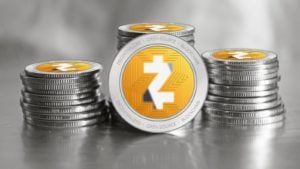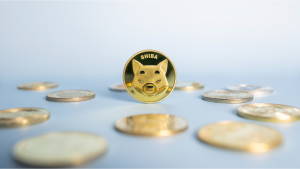The broad rally in the crypto market last year and the beginning of 2024 has led to this list of cryptos to sell. These projects lack network fundamentals that make them solid investments and should be on your sell list. These cryptos are mostly centered around hype and FOMO, which is dangerous to hold long term.
Investors should consider unloading these meme coins and instead buying more ‘blue-chip’ cryptocurrencies such as Bitcoin (BTC-USD) or Ethereum (ETH-USD). Note that derivatives of these coins are highly likely scams and the properties of security and decentralization are not inherent to blockchain tech.
If you’re looking for coins to dump for safer and more promising options, consider selling these three cryptos as we start the new year.
Rocket Pool (RPL)
Rocket Pool (RPL-USD) is a significantly overhyped blockchain project. The platform allows users to stake in Ethereum 2.0 without using their validator node. However, investors should pay attention to some issues with its tokenomics.
First, the network’s smart contracts represent a serious security risk. Although RPL uses elements of decentralization, it doesn’t mean the network is safe. We’ve seen many black swan events in the crypto market that proved this to be the case, such as with the collapse of the FTX Exchange.
In short, hackers routinely target smart contracts, which can collapse the price of the underlying token or steal users’ funds directly. Using smart contracts also reintroduces the notion of trust into the equation for users’ funds, which is antithetical to its core crypto ethos. People must trust that the smart contract was coded correctly, that the developers don’t have backdoors or other conflicts of interest, that the network is reliable, and so on.
The network risk of RPL is too steep for investors to use comfortably, making it one of the top cryptos to sell.
Zcash (ZEC)

Zcash (USD-ZEC) is a privacy coin somewhat in the same boat of a sell thesis as Monero (XMR-USD). I’ve long believed privacy coins had a limited shelf life because of illicit transactions, money laundering, terrorism financing and other illegal or ethically dubious activities.
Some wheels are in motion, making privacy coins less appealing because of these activities. For example, major crypto exchanges like OKX are reportedly in the process of delisting ZEC and XMR at the start of the year. Some analysts speculate that this move was to keep out regulators’ prying eyes and attract a more ethical user base to its platform. It’s only a matter of time before other exchanges take similar countermeasures.
ZEC may be hit hard due to these changes because of a smaller market than coins like XMR, at just $524.345 million. Also, its appeal (and corresponding weakness) is it’s also a high-yield masternode coin. Investors can earn ZEC by running nodes to secure the network. The problem is due to centralization risk, as those affording more nodes have a greater influence over the network. This makes ZEC one of our top cryptos to sell on a network level.
Shiba Inu (SHIB-USD)

Shiba Inu (SHIB-USD) is a meme coin that once had its time in the sun. Those lucky enough to hold it through its once-in-a-lifetime rally have undoubtedly done well for themselves. However, looking ahead, there isn’t much room for optimism.
In December, whales accumulated trillions of SHIB between wallets, likely in anticipation of the upcoming Bitcoin halving event. This doesn’t indicate organic interest but rather riding on hype and people looking to make a quick buck.
In the short term, there are also risks of SHIB falling sharply — even if the rally works out well for speculators. With a few big bag holders controlling much of its supply, a few opportunistic people dumping their holdings could put the whole ecosystem into the red. This and a lack of progress in establishing its utility make SHIB one of our cryptos to sell.
On the date of publication, Matthew Farley did not have (either directly or indirectly) any positions in the securities mentioned in this article. The opinions expressed are those of the writer, subject to the InvestorPlace.com Publishing Guidelines.


